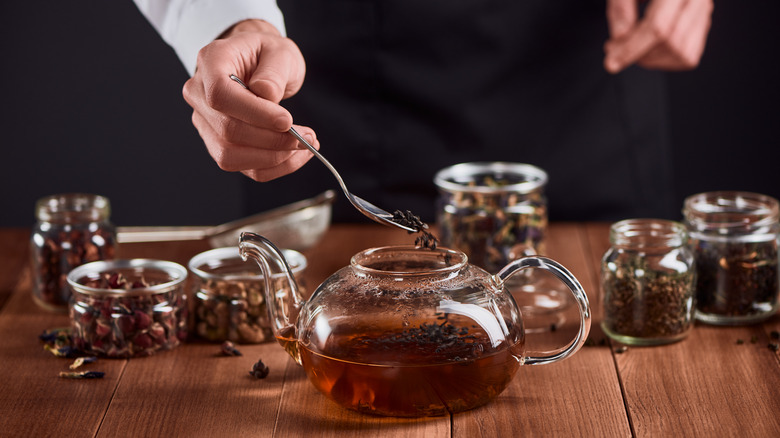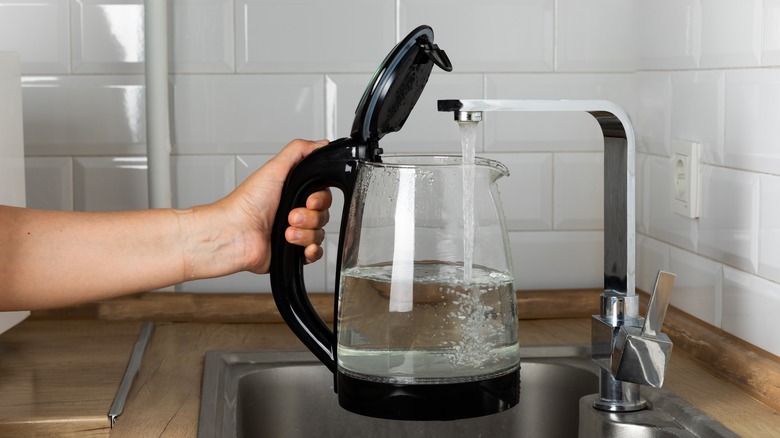The Water Used When Making Tea Matters More Than You Might Think
Like coffee, there are many elements to making tea that can affect the flavor profile of the brewed cup. However, there's an often overlooked component that can drastically impact your cup's flavor profile — the water you use. The simple act of filling your kettle with fresh water each time you go to steep a cup can be a game-changer in unlocking the full potential of your tea leaves.
Though it might not seem like an issue, when water is boiled repeatedly, its oxygen content diminishes. Each round of boiling strips away a bit of this vital element, leaving the water — and therefore your tea — flat. It might seem inconvenient, but refilling your kettle with new water is worth the extra effort. But why does oxygen matter in the taste of water and, subsequently, your tea? Well, oxygen isn't just a bystander. It actively participates in the brewing process. It interacts with the tea compounds, enhancing their release and contributing to the overall aroma and flavor. Think of it as a catalyst, amplifying your brewed cup of tea.
Using new water allows for a purer flavor
Now, let's delve into the impact of water on tea's bitterness. The presence of oxygen in water can indeed mitigate the bitterness of tea. When water lacks oxygen, it tends to extract more tannins from the tea leaves, resulting in a harsher, more astringent brew. By using water rich in oxygen, you're promoting a smoother, more balanced extraction. Ultimately, by using the best water, you can enjoy the best notes of your selected tea without any of the biting bitterness.
There are, of course, other factors in brewing tea that isn't bitter. For example, the length of time that you allow the tea leaves to steep affects how bitter the flavor will be. You can add a pinch of salt to help balance out the flavor as well. So, the next time you reach for the kettle, remember that it's not just water. It's the key to unlocking the full potential of your tea.

